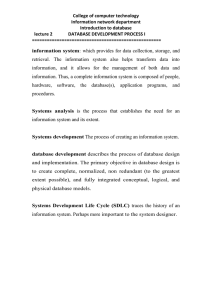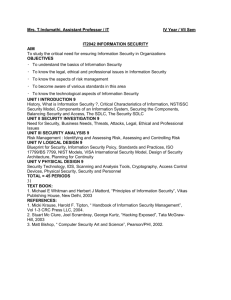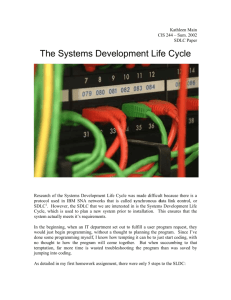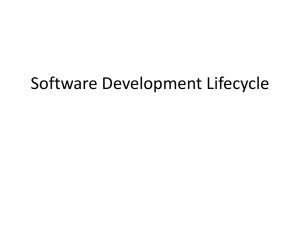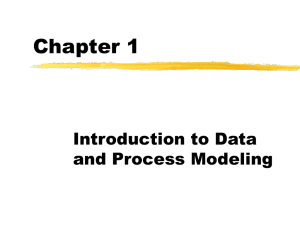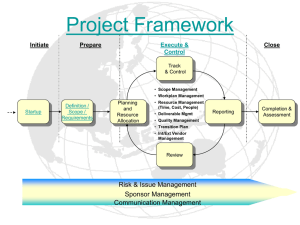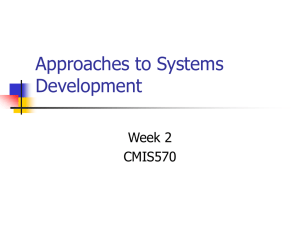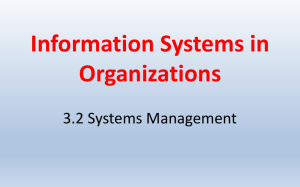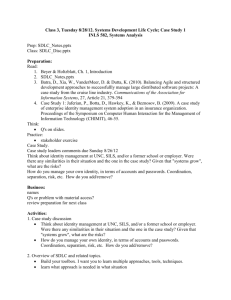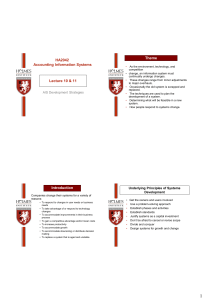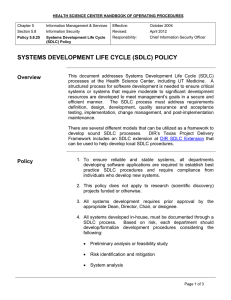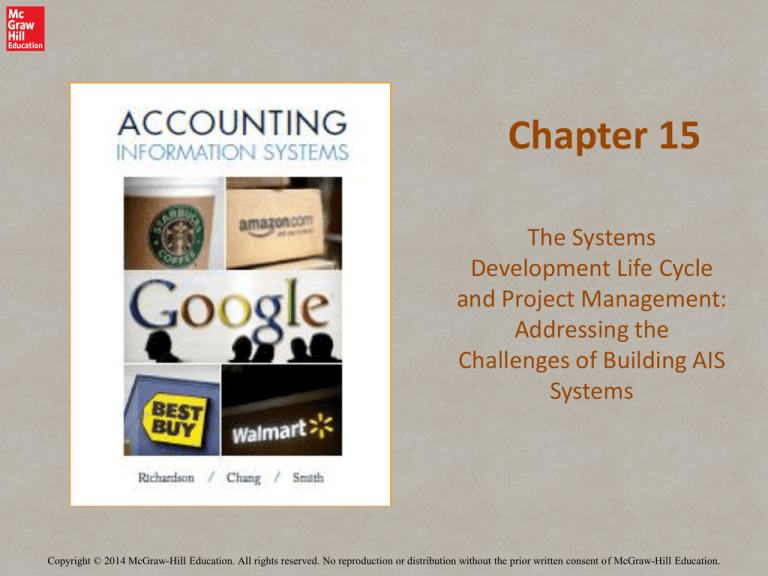
Chapter 15
The Systems
Development Life Cycle
and Project Management:
Addressing the
Challenges of Building AIS
Systems
Copyright © 2014 McGraw-Hill Education. All rights reserved. No reproduction or distribution without the prior written consent of McGraw-Hill Education.
Learning Objectives
• LO#1 Describe each phase in the systems
development life cycle.
• LO#2 Explain the core principles of information
systems planning
• LO#3 Define project management and describe the
positions of those who lead the project.
• LO#4 Explain why IT projects are challenged and the
tools that are used to overcome these challenges.
• LO#5 Explain why users do or do not want to use a
new information system designed for them.
15-2
LO# 1
The Systems Development Life Cycle
• The systems development life cycle (SDLC) is the
process of creating or modifying information
systems to meet the needs of its users.
• The SDLC is generally viewed as the foundation
for all systems development that people use to
develop such systems.
15-3
LO# 1
Phases of the Systems Development Life Cycle
•
•
•
•
•
Planning Phase
Analysis Phase
Design Phase
Implementation Phase
Maintenance Phase
15-4
LO# 1
The Recursive Nature of the SDLC
15-5
LO# 2,3
Project Management: A Few Terms
• Project management is the planning, organizing,
supervising and directing of an IT project.
• A project manager is the lead member of the
project team that is responsible for the project.
• The project sponsor will often be a senior
executive in the company who takes
responsibility for the success of the project.
15-6
LO# 4
Challenges of IT Project Management
15-7
LO# 4
Constraints of IT Projects
15-8
LO# 4
Project Management Tools
• PERT chart – works to identify all tasks of a
project
– Notes task sequencing and task dependence.
– Notes critical path – the path that represents the
minimum amount of time needed for the
completion of the project when sufficient
resources are allocated.
15-9
LO# 4
PERT Chart
15-10
LO# 4
Project Management Tools
• A Gantt chart is a graphical representation of the
project schedule by mapping the tasks to a
project calendar.
15-11
LO# 4
Gantt Chart
15-12
Will the Systems Be Useful?
Will it be Used?
LO# 5
15-13
LO# 5
Usefulness and Ease of Use?
• What can be done to address perceptions of
usefulness of a new accounting information
system?
• What can be done to address perceptions of ease
of use of a new accounting information system?
15-14
LO# 5
Summary
• The systems development life cycle is the foundation for all systems
development, models, and methodologies that people use to
develop such systems. The SDLC has five phases: Planning, Analysis,
Design, Implementation and Maintenance.
• Project managers and project sponsors each play key roles in
managing system development.
• Many AIS and IT projects fail to meet expectations. If we can
understand the reason these projects fail, we can better design the
project management process to address these reasons.
– Scope, time and cost represent the triple constraints of project
management
• AIS developers, project managers and project sponsors should all be
aware of how a new system is perceived by those who will
ultimately be using the new system.
15-15

